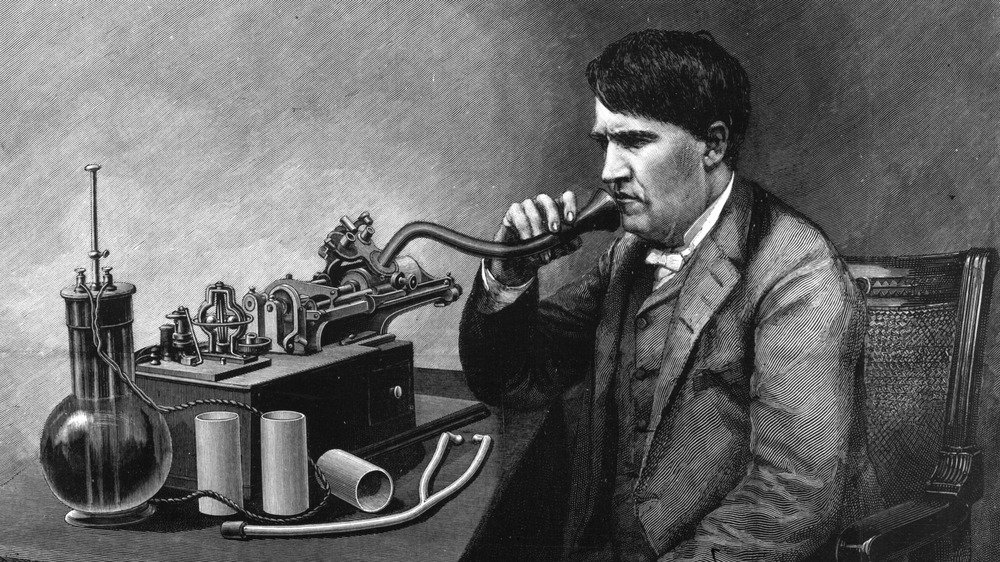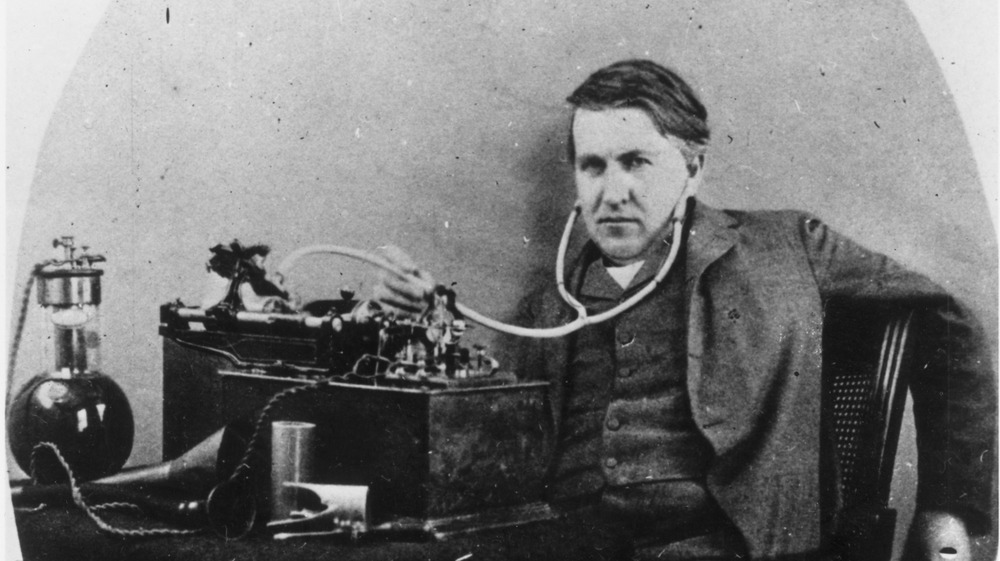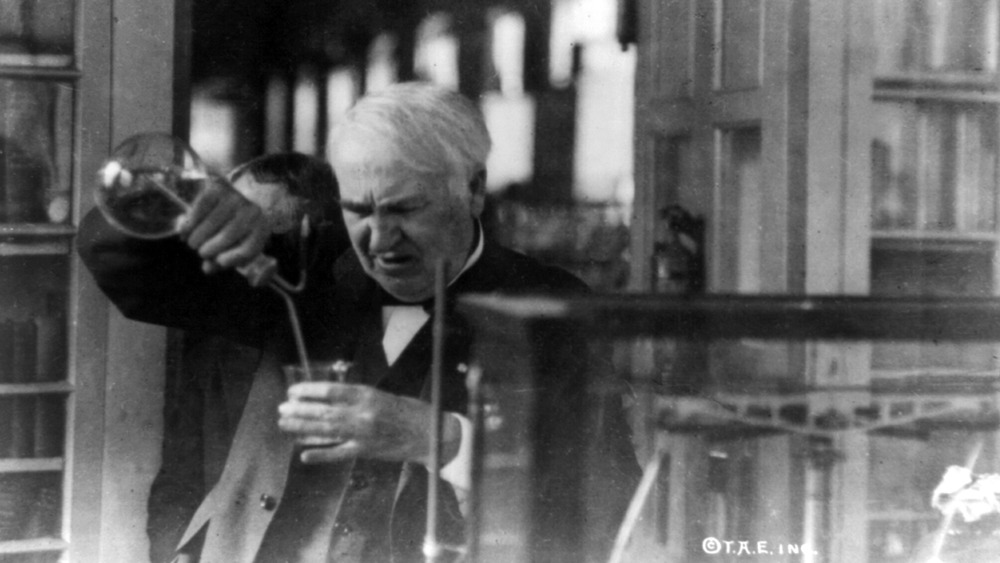This Is How Thomas Edison Tried To Speak With The Dead
Thomas Edison was arguably the most prolific inventor of the Industrial Revolution. According to Britannica, he held the world record at the time for patents, with 1,093. And among those were some truly life-changing inventions, such as the telegraph, the phonograph, alkaline batteries, movie cameras, and more (the light bulb? Not really). With such a long list of new ideas to his name, however, not all of them were going to be zingers. For example, Edison had a rather peculiar idea for how we'd use steel in the future. But solid steel houses were far from his wackiest whim. That title definitely goes to his idea for a "spirit phone," a contraption he hoped would enable people to speak with the dead.
"I have been at work for some time building an apparatus to see if it is possible for personalities which have left this earth to communicate with us," Edison told The American Magazine in 1920, according to LiveAbout. Despite this and another statement he made to Scientific American, that for the longest time he had been "thinking for some time of a machine or apparatus which could be operated by personalities which have passed on to another existence or sphere," the scientific community was unsure of his actual dedication to such a project. The speculation was put to rest in 2015 when a French translation of Edison's diary revealed a shocking discovery.
Edison revealed in his diary that he had been working on a 'spirit phone' to talk with the dead
Edison died in 1931, and his posthumous memoir The Diary and Sundry Observations of Thomas Alva Edison was published in 1948. According to Tech Times, the final chapter of that book included the inventor's designs for a "spirit phone." That chapter, however, was never published in English. It had been removed from the original text before publication, and in its absence scholars and scientists believed Edison's statements about making tech to talk to ghosts were simply his odd way of making a joke or trying to pull a fast one on the public.
But that chapter wasn't removed from the book entirely. It was never edited out of the French translation, and in 2015, Edison's true beliefs about the next plane of existence were brought to the attention of French readers via a book titled Le Royaume de l'Au-dela (The Kingdom of the Afterlife). Radio personality and philosopher Philippe Baudouin, who wrote the preface to the book, said that Edison made a deal with an audio engineer named William Walter Dinwiddie in which the first of the two to die "would try to send a message to the survivor from beyond." Baudouin said that the chapter reveals that Edison "imagined being able to record the voice of another being, to be able to make audible that which isn't — the voice of the dead."
How Thomas Edison came to believe in ghosts
Although he was a genius, Edison was one of several ostensibly intelligent people who got caught up in the turn-of-the-century religious fad known as spiritualism. The movement attracted tons of people we consider to be pretty smart, from scientists and Nobel Prize Winners like Pierre Curie (husband of Marie Curie) to famous authors like Charles Dickens and Sir Arthur Conan Doyle. According to HuffPost, the religion saw a boost in popularity after World War I. Lots of people had lost loved ones and they were desperate to be able to speak with them one last time. In the face of such widespread grief, a wave of quacks posing as mediums swept through the United States and elsewhere, claiming they could conduct séances to put people in contact with the ghosts of their loved ones.
But Edison was smarter than all those others getting duped by charlatans, of course. He told American Magazine in 1920 that the "methods and apparatus commonly used and discussed [by practitioners and believers of spiritualism] are just a lot of unscientific nonsense." So he decided to find a scientific way to talk to ghosts. He had a theory that "our personality hereafter will be able to affect matter" and that he could find a way to make that happen. But he died before he could realize that dream, and people like Harry Houdini eventually proved the religion to be full of phonies.


